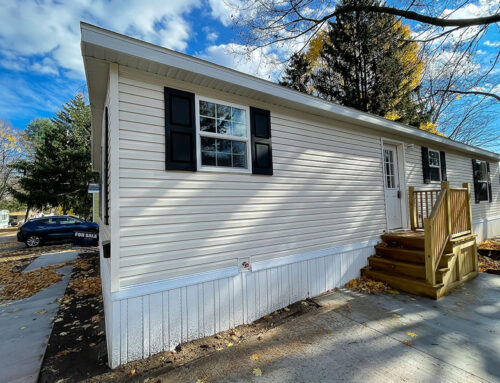My long-time friend, Will, is a part-time real estate investor. But, lately, he’s been talking about quitting his corporate job to start up a full-time investing business like me. So, over a round of golf at the Bethpage State Park Black Course one Saturday morning, we talked about where he wanted to buy residential investment property in New York and how soon he wanted to get started. Tired of managing the multi-family units he owns in Brooklyn, he said he wanted to start flipping houses in Long Island and the sooner, the better. He and his wife live in the area and are expecting their first child, so he liked the idea of working closer to home. I liked it too. I’d started investing in Long Island for similar reasons, so could certainly relate. I’ve continued buying and renovating properties in the area because it also helped me grow my business.
Before we knew it, we were at the 18th hole. We’d covered a lot of territory, including why flipping houses is a good business in Long Island. Here’s an overview of our conversation, Long Island’s real estate market, and how you can invest in it too.
Flipping Houses in Long Island is Good Business
Long Island’s housing market has been steadily recovering since the housing crisis brought many markets across the U.S. crashing down. According to the Multiple Listing Service of Long Island (MLSLI), the average median closed price for Long Island homes since January of last year alone rose to $440,000—a 4.8% increase. Nassau County saw a jump of 6% to $503,500 and Suffolk County experienced an increase of 5.9% to $359,000. The median closed price in Queens County, which is one of the five boroughs of New York City, but also a part of Long Island, went up by 12.8% to $547,000. The MLSLI also reports that single-family homes account for the majority of the price increases and the number of properties sold in each county.
Inventory also dropped between January 2017 and 2018 by 6.34%, which correlates with a rise in median closed prices for Long Island and suggests an increased demand for housing in the area. That more homebuyers are interested in living in Long Island is not surprising. Law enforcement officials in both Nassau and Suffolk counties recently told local news outlets that crime is down overall and that violent crime, in particular, has dropped by close to 35% from last year—reaching numbers not seen since 2002. Crime in Queens County ranks with the national average but remains below many other areas of New York City.
In addition to low crime rates, Nassau and Suffolk counties have other things going for them as well. Nassau is known for having good schools as well as several family-friendly amenities like multiple parks and community centers, Museum Row, and the largest public beach in the world. Suffolk County is home to golf courses and vineyards, the Long Island Aquarium, and the Robert Moses State Park. It also boasts beautiful waterfront views and lower property prices than surrounding areas. Though neither of these counties are an easy commute into Manhattan, both may also be desirable, in part, because of their distance from the big city. Families, in particular, tend to be drawn to suburban communities, especially those with low crime rates, good school districts, and affordable housing.
Queens County boasts some great amenities as well. Queens offers a relatively shorter commute into New York City than other parts of Long Island, as well as lower-than-average home prices compared to some of the other boroughs. So, for professionals who are priced out of living in Manhattan or Brooklyn, but still need to work there, Queens makes for a good compromise. Nearby Citi Field, Flushing Meadows Corona Park, and the large number of museums and gardens in Queens help to attract families to the area as well.
But, if median closed home prices are up and inventory is down, are there enough opportunities to buy investment property in Long Island for you to build a business? Fortunately, there are.
In spite of an overall drop in foreclosure activity throughout the U.S., New York is staying ahead of the curve, according to ATTOM Data Solutions. Foreclosure auctions in New York are at their highest in 11 years, which is in stark contrast to the number of auctions we’re seeing nationwide. New York also has the biggest backlog of foreclosed properties than any other state—over 25,000, in fact. Nassau and Suffolk Counties, in particular, have some of the highest number of legacy foreclosures at 6,782 and 3,417 respectively. So, building your portfolio and your real estate company by buying foreclosed homes in New York City, Long Island, or wherever you might invest in New York, is not beyond the realm of possibility.
However, it’s also important to note that the foreclosure process averages over 1,000 days, which means it takes at least two years from the time new foreclosure proceedings start on a property to the time the home is repossessed by the lender. In fact, Queens ranks among those counties with the longest time to foreclosure—almost 3,000 days! So, rather than wait for a bank or other lender to foreclose on a home and sell it at auction—or add it to its backlog of inventory—approaching distressed homeowners before they lose their houses makes more sense. You’ll still have the opportunity to buy, renovate, and sell houses for profit, but you’ll also have the chance, and the time, to help homeowners who are having trouble paying their mortgages.
But, the bigger question, if you’re looking for more real estate investment opportunities, is how do you find motivated sellers? After all, you need them to turn a good part-time investing gig into a great full-time investing career. The answer, of course, is by having access to a real estate investor lead generation system that attracts distressed homeowners, whether they’re in danger of being foreclosed or not, and brings them to you.
A Real Estate Investing Franchise is a Great Business
Like Will, when I first started investing in real estate, I worked at it part-time. Unlike Will, investing on a part-time basis wasn’t a deliberate choice. I simply didn’t have enough leads to make it a full-time gig. As a result, I almost went back to my corporate job. What I did have, however, was a strong work ethic and a recommendation to join HomeVestors®, widely known for the national “We Buy Ugly Houses®” marketing campaign. You’ve seen the billboards with the caveman, right? Everybody has. That’s why distressed homeowners who need to sell their houses fast know who to call. And, independently owned and operated HomeVestors®’ franchisees, like me, answer those calls for help. It’s the most effective lead-generating system I know for turning a good investing business into a great one—and for helping a homeowner get out of an “ugly” situation.
If it’s time to turn your investing business around, call HomeVestors® to become a franchisee today!
Each franchise office is independently owned and operated.
Contact
"*" indicates required fields





